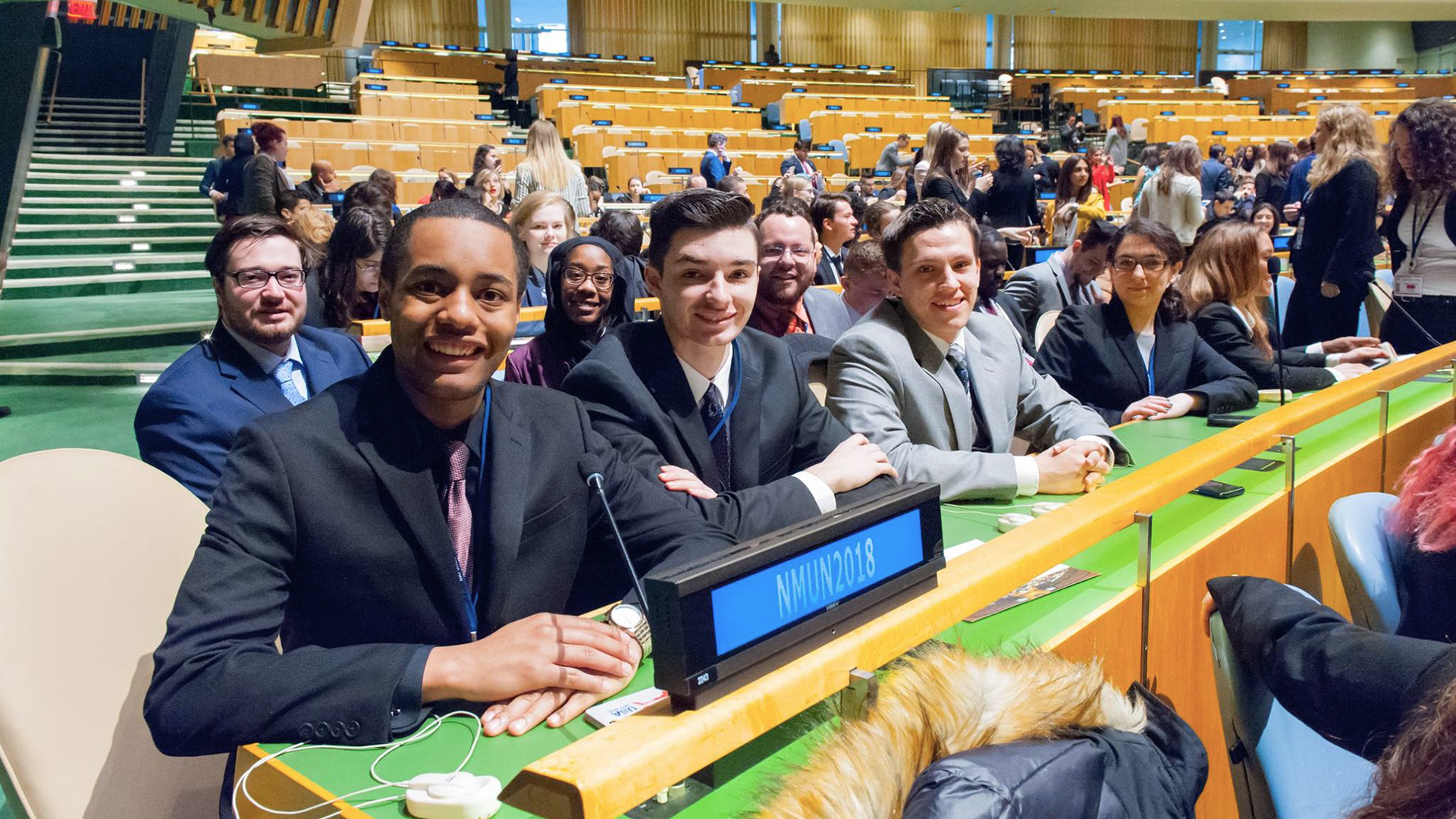Tuesday, Apr 17, 2018
University has a legacy of Model UN achievement
by Robert Leitner ’17
Rider University’s Model United Nations (UN) team received the Distinguished Delegation award, two Outstanding Delegate awards and one Position Paper award in the 2018 National Model UN competition held at the Midtown Sheraton in New York City from March 25-29.
The national competition attracts more than 5,000 college students, more than half of whom are from outside the United States. This was the 51st team that Rider sent to the competition. The teams have created a successful legacy winning the top award eight times out of the last ten competitions.
“The annual national Model UN conference in New York City is a truly international platform,” says Jillian Montilla, co-leader of Rider’s Model UN team. “In between formal committee sessions, students have the opportunity to discuss these same global issues, plus countless others, with fellow delegates, gaining direct exposure to the world of authentic international opinion.”
Each year Rider is assigned a country to represent in the competition. This year, Rider’s team represented Turkey.
“Turkey presented a particular challenge to our team because of its conflicted southern border and important geographical position as a buffer zone between the Middle East and Europe,” says Kenneth Dillon, co-leader of Rider’s Model UN team.
The team consisted of 21 students, ranging from freshmen to seniors with a variety of academic interests. Students from all majors are encouraged to try out for the team, as it plays to their advantage given the range of issues the United Nations faces.
The two components of the Model UN competition are position papers and role-playing. Students spend a large portion of the spring semester researching their country, gathering as much relevant knowledge and preparing to voice their country's position on topics of global or regional importance at the competition.
“Representing Turkey, we were lucky to have a great deal of information available, but we also had to be more careful about checking the validity of our sources than we have in past years because of the various political actors trying to stake a claim in the region,” says Dillon.
As the competition approached, student delegates met with representatives from the Turkish Mission in New York City, and then, at the competition, they were expected to act “in character” of their country while presenting their position papers and solutions.
“Delegates learn how to respond to new points of debate after having established the interests and reservations of the Turkish nation on some of the most pressing global issues: the nonproliferation of chemical weapons, vaccination for global health, and responding to international migration crises to name a few,” says Montilla.
Many students on this year’s team were either freshmen or new to the Model UN experience — an experience that allows individuals to develop interpersonal, research, writing, presentation, diplomacy and negotiation skills.
“I think having such a new team only encouraged the further cultivation of closer team bonds considering the necessary equalization and subsequent fine-tuning of Model UN skills,” Montilla says. “The returners really stepped up as leaders this year, offering their expertise and experience to newcomers. As for the new recruits, they rose and surpassed the level of excellence we set for them.”
Rider's Engaged Learning Program requires every student to apply their academic knowledge to relevant, hands-on experiences outside of the classroom, and the Model UN team is a terrific example of that principle in action.
“The entire experience, including the preparation for the competition, is student-driven,” says Dr. Barbara Franz, the faculty advisor of Rider’s Model UN team. “Thus, this course is exclusively about learning by doing, and by getting emerged in the countries' problems, and proposed solutions to regional and global economic, political issues.”

